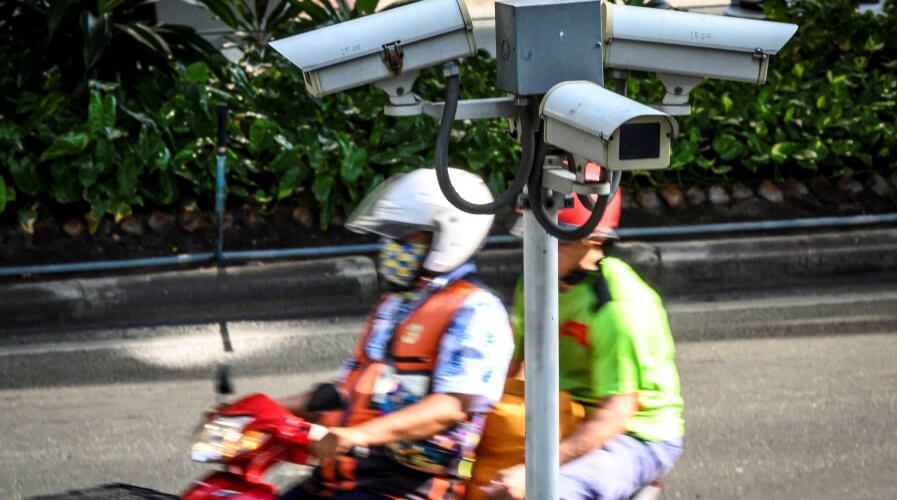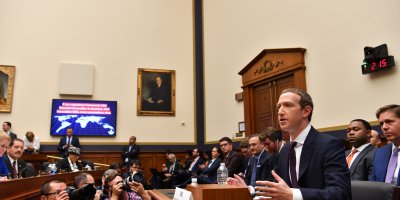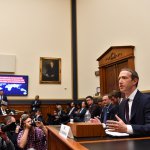
A closed circuit TV (CCTV) system is seen as a motorcycle taxi rider ferries a passenger in Bangkok. Source: AFP
Digital surveillance – will data privacy matter during the pandemic?
It seems like civilians in countries with high numbers of infected cases have been placed under a questionable level of scrutiny as government agencies and technology giants step up efforts to curb the spread of the virus.
According to a multitude of news sources, twenty-four countries or so have forged ahead with digital surveillance measures by using either personal or mass location data, facial recognition capabilities, and tracking apps to trace at-risk individuals.
This has alarmed more than 100 citizen rights groups that have issued a warning to government bodies about the sudden push for digital surveillance.
The groups, made up of leading civil society organizations like Privacy International, have reportedly forewarned governments that a global emergency is not an excuse for ‘pervasive snooping‘.
“An increase in state digital surveillance powers, such as obtaining access to mobile phone location data, threatens privacy, freedom of expression and freedom of association,” the groups said in a statement.
They believe that while to some extent the reliance on digital surveillance is justifiable, there still needs to be clear limits as to how much data is being collected, stored and used.
A very sudden and accelerated launch of surveillance measures may also result in permanent damages to human rights sooner or later. The trust of civilians in government bodies and private technology companies are at risk here.
One of the biggest worries is the fact that governments may complicate or intensify the harm of this outbreak by running roughshod over civilians’ privacy and dignity.
Estelle Masse, a senior policy analyst at Access Now said: “We must ensure that the measures governments are taking right now do not transform this health crisis into a global human rights crisis.”
One way of doing so is by provisioning some laws around the use of civilians data to support tracing and monitoring efforts. The laws should, of course, be devised with public health goals in mind and a time limit.
Additionally, officials must also reassure civilians that their data will not be handed to any other parties or used for commercial purposes.
Despite the gravity of the current climate, governments must remain transparent with civilians regarding the amount of data collected, the protection level enforced and how the data is being used.
China seems to have led the ‘revolution’ in digital surveillance ever since it was revealed that that country has extensively relied on personal mobile location data, facial recognition technology, and even AI-powered smart glasses to flatten the curve – and it has managed to do just that.
Now, the country has introduced a traffic light system that’s anchored to a mobile app to help determine whether an individual is fit to roam and meet others. Although media outlets have coined the move as ‘intrusive’, it hasn’t stopped other countries from following suit under jurisdictions of their own.
However, is the use of data – to any extent – warranted and justifiable?
That’s a key question that has stirred a lot of conversations today. As the urgency to make sure civilians obey quarantine orders heightens, the lines between data privacy and national health interests have been blurred.
Understandably, with over 70,000 lives lost and many more at risk, the launch of digital surveillance campaigns were supported with ample reasoning. But, there is no denying that the lack of transparency and security guarantee of personal data is deafening.
With personal data placed at the core of the digital fight against the pandemic, it’s hard to tell whether sacrificing privacy is a moral effort or a forced-upon civic duty of the civilians themselves.
There’s a lot at stake here, so there is no surprise that data privacy issues have been raised over and over again. Private technology companies must make clear of how much data is being shared and how much control do their users have over the shared data.
That is one key way in making sure that the rights of users are protected and there will be zero possibilities for data privacy violations and abuse in the future.
On top of that, an understanding of civil duties, social laws, and privacy rights is essential in helping governments find common grounds with both, civilians and rights groups.
READ MORE
- Ethical AI: The renewed importance of safeguarding data and customer privacy in Generative AI applications
- How Japan balances AI-driven opportunities with cybersecurity needs
- Deploying SASE: Benchmarking your approach
- Insurance everywhere all at once: the digital transformation of the APAC insurance industry
- Google parent Alphabet eyes HubSpot: A potential acquisition shaping the future of CRM


